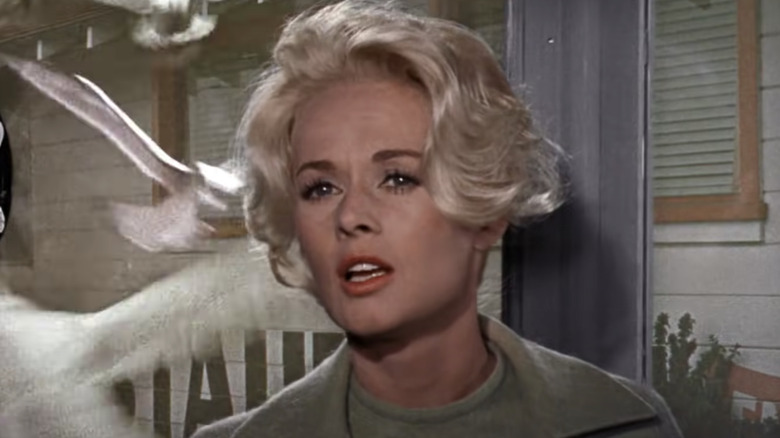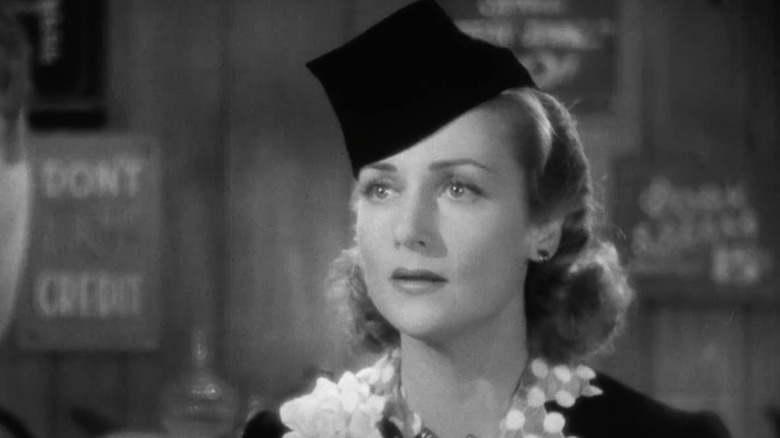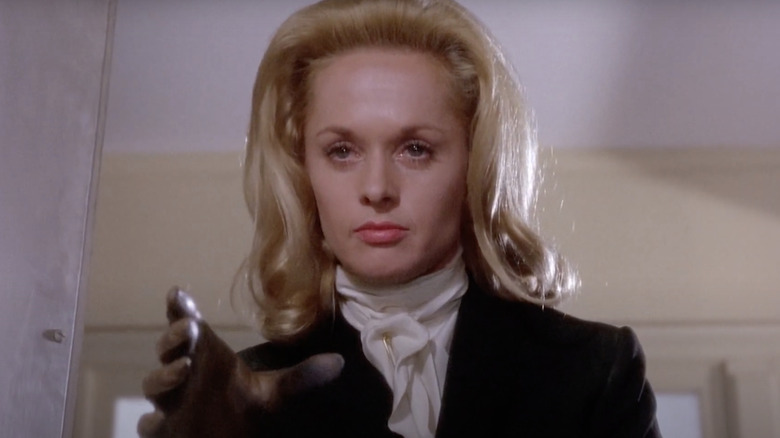Alfred Hitchcock Had Some Harsh Words About Working With Actors
Only in the last few years has there been an expanded conversation about the on-set treatment of actors and crew on set. From the #MeToo movement to the recent battle from IATSE for better working conditions (that didn't exactly go terrifically), the working conditions for so many who work in the entertainment industry can be abhorrent. People work exceptionally long hours, are treated with very little respect, and many are not paid fairly. Even worse, some are subject to physical and/or emotional abuse. The glitz and glamor of Hollywood is so appealing, but the system that supports that image could not be further away from it.
While this has only come to light in the mainstream recently, this kind of behavior has existed for much longer. It was rarely ever talked about, and if it was, there would be a hefty concerted effort to silence that talk. However, occasionally, someone within the industry talks about the way people are treated, but they spin it in a way to make it seem comical and light hearted, where there's absolutely no introspection to be had. They simply tell the story as if it's the way things are supposed to be. This is what happened with Alfred Hitchcock when he appeared on "The Dick Cavett Show" back in 1972. What was an amusing anecdote 50 years ago now sheds a lot of light on how he treated his collaborators.
'All actors should be treated like cattle'
During the interview, Dick Cavett mentions that, at one point during Alfred Hitchcock's career, the filmmaker referred to actors as "cattle." Hitchcock wanted to clear that up, and by doing so, only made himself look worse. He said:
"Well, I think at the time, I think I said, or I was accused of calling actors cattle, and I said that I would never say such an unfeeling, rude thing about actors at all. What I probably said was that all actors should be treated like cattle."
Hitchcock being Hitchcock, someone truly adept at making something sinister sound funny, does get a big laugh out of Cavett and the audience form his remark. Even a few people applaud the sentiment. But if you really hear what he's saying there, it shows just how little respect the man has for the people who are working with him. Cavett even bolsters Hitchcock further when he says, "It's amazing how much is the director's work and how little the actors are needed." These are the kinds of conversations going out to the mass public, telling them how the movie business operates. This is supposedly a master of his craft, and he has everyone laughing about actors being worthless.
He does show a little respect for Carole Lombard, with whom he worked on "Mr. and Mrs. Smith." During one day of production on the film, she had a corral constructed and brought in three cows that wore name tags with the actors in the film's names. He liked her because "she had a great sense of humor" to be able to do something like that. Of course, having a "great sense of humor" has been used countless times to excuse abhorrent talk in the workplace. We can't ask Carole Lombard if doing something like this was a defense mechanism, as she has not been with us for some time, but it very well could have been.
Luckily, a prominent Alfred Hitchcock collaborator has tried to put the record straight on how he treated people. Unfortunately, Tippi Hedren had to live through it.
'I'll ruin your career'
Tippi Hedren starred in two of Alfred Hitchcock's films in his later years, 1963's "The Birds" and 1964's "Marnie." She was the latest in his long run of platinum blonde leading ladies, and according to Hedren, she became the object of his obsession. According to Hedrern, whether through interviews or her own autobiography, she alleges that Hitchcock sexually harassed her by speaking of fantasies he had about the actress, as well as stalking her, even going so far as to try to kiss her and have her touch him. Hedren was under contract with Hitchcock for seven years, and because of her refusal of his advances, he would not let her out of that contract to do other work. In an interview with the New York Times, Hedren says:
"I said, I've got to get out of the contract. He said, I'll ruin your career. And he did. He wouldn't let me out of the contract. I'd be a really big star if he hadn't stopped my career. There were so many people who wanted me for their films. All he said was, 'She isn't available.' That's a mean, mean man."
She spent years just getting $600 a week from her contract, not acting in anything. Hedren could have become one of Hollywood's go-to leading ladies, and instead, she was under the thumb of someone who thought actors should be treated like cattle. They were people to be corralled and to do exactly what he said. Of course, Alfred Hitchcock made great films. Even Tippi Hedren still said of him, "What he did with his life is astounding. There is no one in this world that did films like he did. Nobody." but if you are a filmmaker who wants to take lessons from how Hitchcock made his films, emulate what he did on screen and not what he did off it. Learn how to make a great films and respectfully collaborate with other brilliant artists. They're not mutually exclusive.


